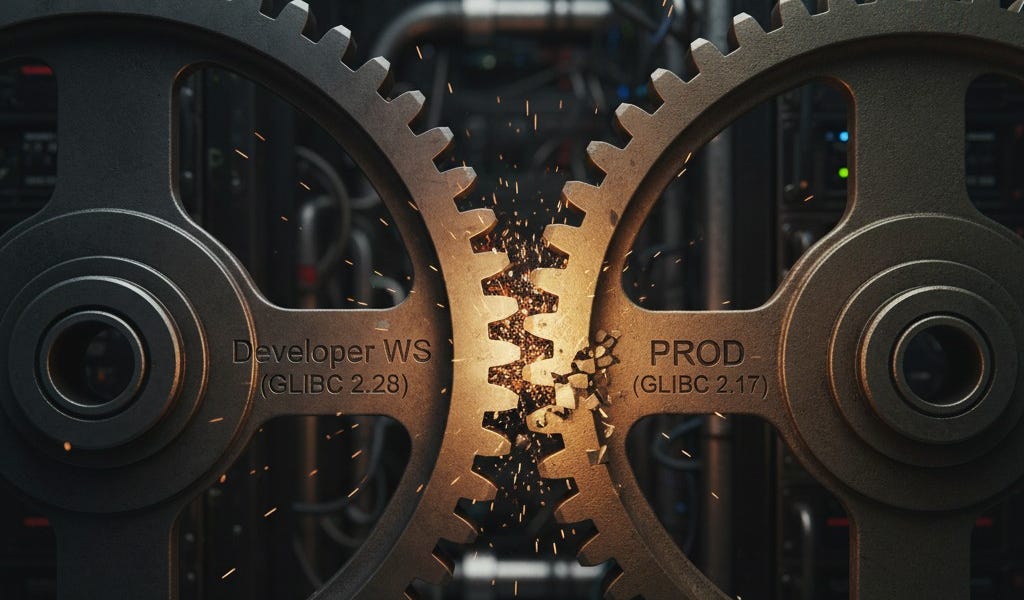Bazel Caching, Remote Execution, and glibc Version Mismatch Crash Production

This article details a production crash caused by the interaction between Bazel caching, remote execution, and differing glibc versions across environments. A developer builds and tests a change locally, CI leverages the cache to build a release, but deployment to production fails due to a missing 'GLIBC_2.28' version. The article analyzes how glibc version discrepancies break build reproducibility and presents solutions: a quick hack involves capturing local and remote glibc versions, selecting the higher one for the C++ toolchain; a more robust solution restricts Action Cache writes, forcing builds to run on remote executors; the ultimate solution utilizes sysroots, installing multiple glibc versions across environments and explicitly specifying which to use. The article stresses the importance of reproducible builds, recommending solutions based on context.
Read more




